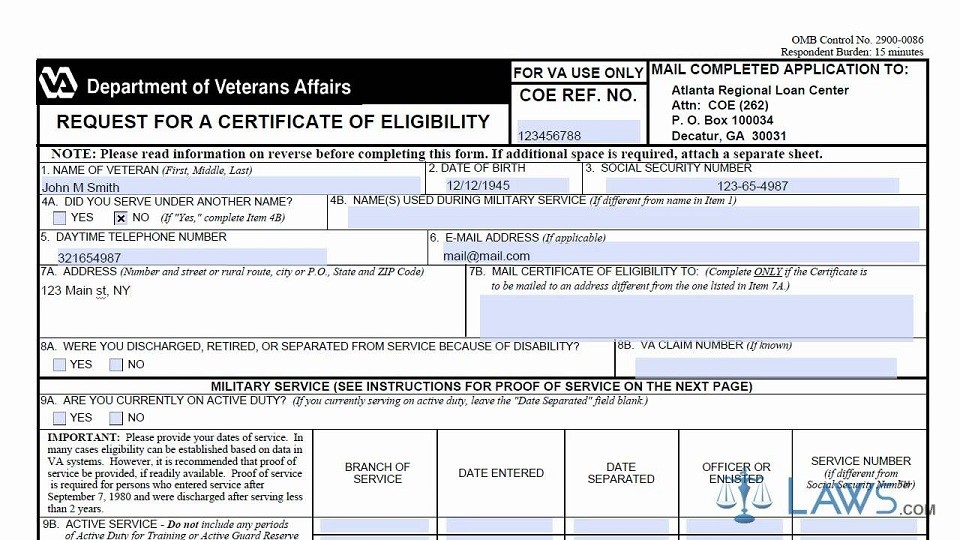Protect Yourself from These Common Military Scams

How Military and Veterans Can Protect Themselves From Scams
These days, it can feel like you can’t trust anyone. Scams are everywhere, from people impersonating a business you trust to others getting sensitive information to steal your identity. It can be confusing and frustrating as you try to protect yourself.
There are scammers out there who focus on veterans, service members, and military spouses. There are also things you can do to help protect yourself. Here are a couple of military scams aimed at active-duty military and veterans to be aware of. We also discuss how to protect yourself.
How to Spot a Military Scam
The first thing to remember about military scams is that you, the victim, are meant to be kept in the dark about some aspect of the scam. Beware of vague answers to your direct questions–this is a warning sign.
When it comes to romance scams, if you ask to meet in person, you are likely to be given a string of excuses. Or the request for money will come then–the scammer asks you for financial help to make your in-person meeting a reality. If you have never met someone in person, do they really have the right to ask you for money? No, they don’t, which is why they will invent some kind of emergency or personal issue that requires additional financial help from YOU.
If you are worried about rental scams, keep an eye out for red flags that include hard-sell tactics, and false urgency. One great example? Being told, “We have many interested renters looking at this property and it might be gone tomorrow” and urging you to hurry up and send money or sign a lease. Don’t do it. Never rent from a company you cannot find more information about online, and beware any individual prospective landlord who you cannot find information about online in the form of renter reviews or similar information.
The biggest warning sign for many scams? Third parties contacting you without you having asked them or given them permission to do so. If you initiated the contact, you may or may not be talking to a con artist. But if you DID NOT reach out first, do not proceed.
Rental and charity scams are often revealed with a bit of research–look for bad reviews of a charity or rental company via Google search or on social media. Beware of any third party reaching out to you without you having contacted them first, and DO NOT give your personal data to any third party who has initiated contact with YOU.
According to a recent AARP study, nearly 80% of veterans reported being targeted by scams related to their service. Arm yourself with knowledge. Here’s a list of common military-targeted scams:
Types of Military Scams
VA Home Loan Scams
The Consumer Financial Protection Bureau recently issued an alert about a VA home loan scam. Members of the military, veterans, and military spouses have been receiving fraudulent phone calls and mail from companies claiming to be affiliated with the VA, the government, or even home loan servicers.
The scammers will try to get people to refinance their homes, agree to loan modifications, or even pay their loans using purchased money orders. They also make people think that they are facing foreclosure on their homes.
RELATED: VA Loan Limits
Advance-Fee Scams
Scammers glean factual data from official websites and pretend to be fellow soldiers who need help moving large sums of money. The scammer will offer to pay you a commission if you temporarily transfer their money into your bank. If you agree, they’ll convince you to lend them the fund’s transfer fee upfront. Once you send them that fee, they vanish.
Benefits Scams
If you get an unsolicited call, text, or email offering to help you increase your benefits, get your benefit money in a lump sum, or access little-known government programs, beware. It’s probably fake.
Charity Scams
Military charity scams typically involve a person or group that has created a fake charity designed to fool you into thinking you’re donating to an established agency or non-profit. Normally, you should avoid giving money to any so-called charity that reaches out to you unsolicitedly and asks for money. It’s one thing to be contacted if you have signed up for a charity’s email list. It’s another to email or call you out of the blue with you having shown zero prior interest.
Like most scam operations, scam charities will ask you for a specific type of payment through cash, wire transfers, or gift cards. This is a huge red flag, and you should NEVER send a charitable donation via wire transfer or gift card. There is one exception–some legit charities ask their donors to purchase gift cards on behalf of veterans as a donation. If you are interested in doing this, you’ll want to take some of the advice below on spotting a scam.
Some scammers make up fake military-related charities; others steal the identities of reputable ones. Before you give your hard-earned money to any cause, looking them up here is a good idea.
Credit Monitoring Scams
Beware of companies that offer to monitor your credit while you’re deployed. Scammers sent out official-looking solicitations for these services, sign you up, and then use that credit information to go on a spending spree.
If you’re on active duty, it’s wise to put an “Active Duty Alert” on your credit report. Taking that precaution is free and easy:
1.) Contact one credit bureau. Request an Active Duty Alert. The credit bureau you contact will notify the others.
2.) Mark your calendar. An active duty alert lasts for one year. If your deployment lasts longer, renew the alert.
Debt Collection Scams
These official-sounding scammers contact military personnel and try to pressure them into paying debts they don’t have.
Deployment Deception Scams
Scammers create fake ads pretending to be service members who are being deployed and need to quickly sell a car or other expensive item. They’ll set a low price, insist on up-front payment, then take the money and run.
RELATED: Financial Planning for Your Next Deployment
Email Bombing
Email bombing is a tactic scammers can use to mask their activities. With email bombing, the scammer will sign your email to thousands of newsletters and websites using a bot. They do this to mask emails coming to your account that could be for purchases they have made using your information or financial accounts they have opened up in your name.
The hope is that you are too busy dealing with all the extra emails; they can slip by without your notice. You must be on top of your email to ensure nothing like that comes through.
Employment Scams
These are fake ads recruiting veterans for “previously undisclosed” federal government posts, work for unspecified military contractors, or other positions in which prior military service would be a plus. Completing their “application process” sometimes involves downloading malware that can give hackers access to your computer. Other times, they’ll steal your identity outright by asking for personal information for a supposed background check.
Fake Military Members
Some scammers pretend to be members of the military. They steal photos from real military members and become romantically involved with unsuspecting people. They then ask for money, saying they need it to get home from a deployment or for food or other necessities—all expenses that are usually paid for by the military.
Fraudulent Records Offer Scams
These scammers charge a fee to help you access military records and government forms that are readily available for free.
“Grandparent” Scams
Scammers study local news articles to learn about the relatives of those deployed. They then reach out to those relatives pretending to be the deployed person and claiming they’re in an emergency that requires quick cash. Make sure your older relatives are aware of this type of fraud.
Jury Duty Scams
If you get a call from someone claiming they work with the court system back home and telling you there’s a warrant out for your arrest because you didn’t show up for jury duty, beware. If they ask for your credit card or social security number, tell them you’ll contact the court yourself.
“Keep Your Military File Up-to-Date” Scams
Scammers pretend to be from the Department of Veterans Affairs. They’ll ask questions to “update” your file. They’re really after information they can use to steal your credit.
Life Insurance Scams
Dishonest insurance agents are known for targeting military members and pressuring them into buying overpriced and unnecessary life insurance coverage.
Military Loan Scams
Beware of “military” car and personal loans that require no credit check and have instant approval. They often come with up-front fees and repayment terms that can leave you with staggering debt.
“Old Friend” Scams
Be suspicious of calls or emails from anyone claiming to be an “old friend” needing help in an emergency or offering you a surefire investment opportunity.
Phishing Scams
Phishing scams seem to be everywhere these days. Unfortunately, sometimes, they use military-related companies and organizations you trust to get information out of you. You might get an email or phone call from someone claiming to be from DFAS (Defense Finance and Accounting Service) asking for your personal information or with links to click that can put malware on your computer that steals your personal information.
Rental Property Scams
These scams target military personnel looking for housing near a base. Scammers pretend to be real estate agents and post fake ads for rental properties, often promising military discounts. They ask for money upfront and then disappear, leaving you with no money and nowhere to live.
Military Rental Scams are often aimed at military people because they often need to look at rental listings in a neighborhood they cannot visit immediately. The scam basically involves a phony rental listing that the con artist has put in a prominent place like Craigslist or ForRent.com.
What the con artist wants you to do is to send them money for a deposit or to “hold” the property in advance. Never do this. Paying upfront to view a property or to “reserve” it is a scam. So is a situation where you must sign a lease before viewing the property. Beware of any rental listing that seems far more affordable than other properties of the same size and type- that much lower price point could be the bait a scammer is hoping you will take.
Military Romance Scams
These scams may target the service member of someone in the immediate family, typically through some form of social media or online dating service.
Military romance scams are essentially the same as other “lonely hearts” fraud attempts; the giant red flag to beware of happens when the person you have met online asks you to help them out financially. When someone you have never met in person hits you up for cash, you should typically NOT send money.
Those foolish enough to consider doing so are usually asked to send the money via prepaid debit card or wire transfer. Do not send money to people you have never met in person.
And any time you are asked to send a specific kind of payment like a wire transfer or prepaid debit card, you should refuse. This specific request is made because scammers can take the money and run, something they cannot as easily do (if at all) using Paypal, Venmo, or other cash apps.
Sextortion Scams
Service members are often targeted by scammers who seduce them into sexual activities online that are secretly recorded and used to blackmail them later.
“Soulmate” Scams
Every year scammers create thousands of fake profiles either posing as deployed military members, or targeting the hearts and pocketbooks of actual military personnel. Once the long-distance romance is underway, they’ll ask for money under the guise of a paycheck snafu, a medical emergency, or plane ticket to come and meet you.
Social Media Scams (Card Popping)
Scammers make fake accounts on Facebook, Instagram, and Twitter. They impersonate military personnel and friend troops, draw them into relationships through direct messaging, and eventually start asking for money.
Social Media Scams are not limited to military families, but they are often targets. There is an old Facebook scam where someone in your Friends list contacts you asking for financial help to get them out of jail, get a car repair while on a trip, or any other “pay now and ask questions later” scenario.
But this person isn’t who you think they are; they compromised someone else’s Facebook account to fool people into thinking a friend was actually in need. Don’t fall for this trick. Call your friend or contact them outside of social media before sending ANY money. Do not send money before you determine whether there is an actual emergency.
Toll-Free Scams
An impostor toll-free phone number mimics that of the Veterans Choice Program (VCP), which allows certain vets to use approved healthcare providers outside of the Department of Veterans Affairs (VA) system. Those numbers have identical seven digits (but a different area code) to the toll-free numbers belonging to trusted entities. When you call back, (dialing 800 instead of 866 or 877, for example), you’ll find yourself in a conversation with a scammer.
VA Impersonator Scams
If you receive an unsolicited call or text from the VA, hang up. The VA will never ask for personal data by phone, text, or email.
Do your homework and follow your hunches. If a deal seems too good—or too urgent—to be legit, it probably is.
RELATED:
- 3 Basics of Budgeting for Military Families
- Financial Steps to Take Early In Your Military Career
- Best Budget Apps for the Military
- Best Practices for the VA Loan Process
- All-Too-Common Money Mistakes of the Military Family
- Ways to Improve Your Credit Score
About the author
Julie Provost is a freelance writer, and blogger. She lives in Tennessee with her National Guard husband and three boys.


